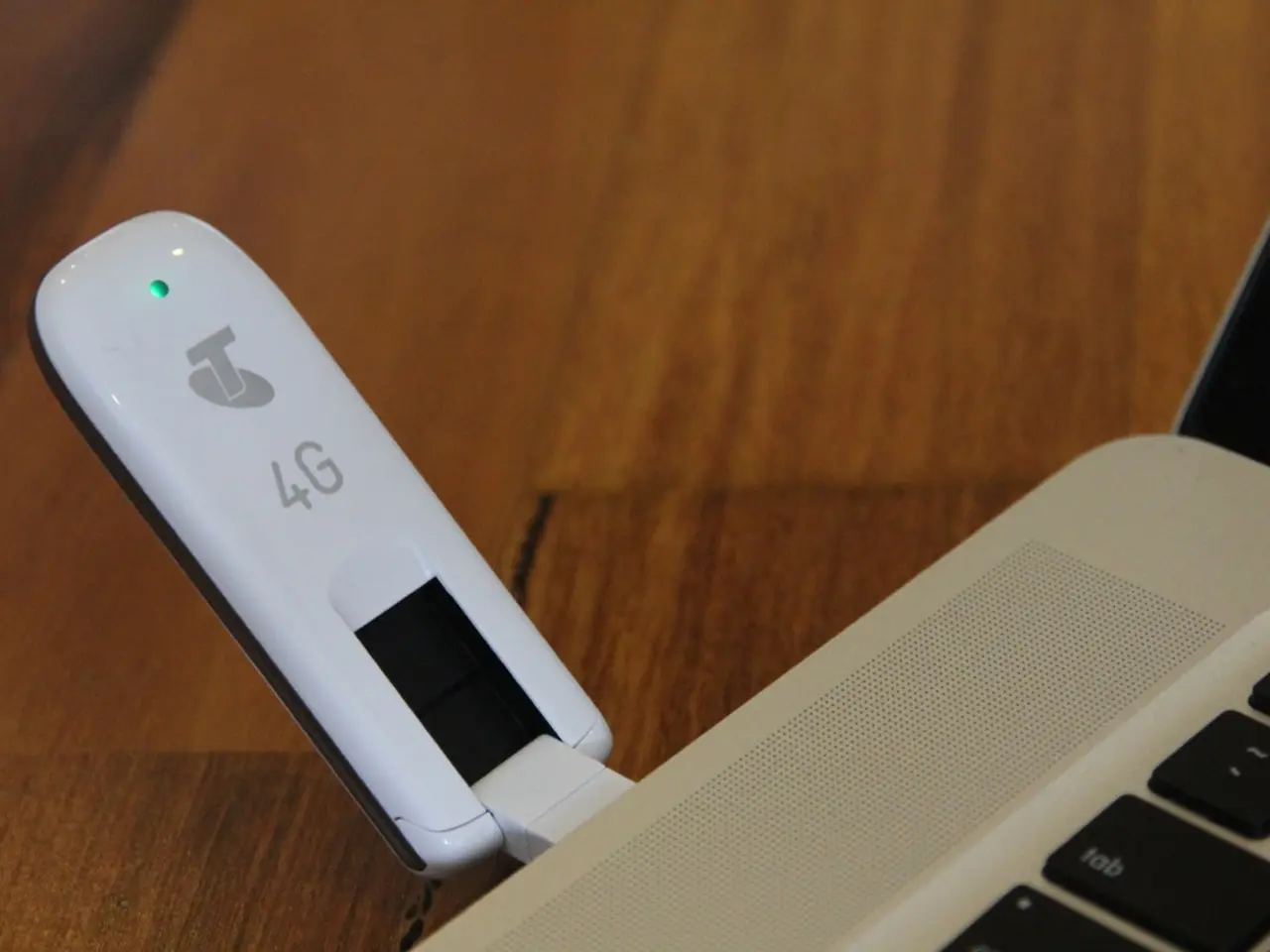Nvidia denies existence of 'secret entryways' in their chips, addressing China's security concerns
In a recent development, NVIDIA, the American tech giant and a world-leading producer of AI semiconductors, has found itself at the centre of a controversy involving its H20 chips, designed for the Chinese market. The Cyberspace Administration of China (CAC) has summoned NVIDIA representatives to discuss "serious security issues" regarding the H20 chips [1][3].
The allegations centre around potential embedded tracking, localization, and remote shutdown functions, which China views as 'backdoors' that could allow unilateral device localization and deactivation, potentially constituting backdoors for remote control without user consent [1][3]. These suspicions stem from both Chinese cybersecurity experts and previous concerns raised by some U.S. lawmakers. The H20 chip, technologically mature and operationally capable of such functions in theory, has raised concerns due to its export to China [1].
However, NVIDIA vehemently denies these allegations. The company states that its H20 chips do not contain any "backdoors" that would allow remote access or control without user permission [2]. NVIDIA emphasizes that the H20 was specifically designed to comply with U.S. export restrictions, and the company has been cleared to ship these chips to China under a license following earlier U.S. export bans and reviews [2].
This controversy reflects the broader geopolitical tensions over AI technology exports, digital security, and trustworthiness of semiconductor hardware between the U.S. and China. The issue comes amidst heightened trade headwinds under U.S. President Donald Trump, and China's economy facing obstacles, including a sputtering economy and a years-long property sector crisis [4].
In a positive development, NVIDIA announced this month that it would resume H20 sales to China after Washington pledged to remove licensing curbs that had halted exports [2]. NVIDIA's CEO, Jensen Huang, has stated that the company remains committed to serving local customers in China and has been assured during talks with top Chinese officials that the country is "open and stable" [5].
Meanwhile, China is promoting Huawei's domestically developed 910C chip as an alternative to the H20 [6]. The Chinese regulator has asked NVIDIA to explain the security risks of vulnerabilities and backdoors in its H20 chips sold to China and submit relevant supporting materials [1].
NVIDIA, which recently became the first company to hit $4 trillion in market value this month [7], has been entangled in trade tensions between China and the United States. The company, however, continues to assert its commitment to serving its customers globally, including in China.
References:
- NVIDIA's H20 Chips Under Scrutiny in China Over Security Concerns
- NVIDIA to Resume H20 Sales to China After U.S. Lifts Export Curbs
- China Summons NVIDIA Over Alleged Security Vulnerabilities in H20 Chips
- China's Economic Challenges Amidst Trade Tensions
- NVIDIA CEO's Assurance of China's Open and Stable Market
- China Promotes Huawei's 910C Chip as Alternative to NVIDIA's H20
- NVIDIA Hits $4 Trillion Market Cap
- The controversy surrounding NVIDIA's H20 chips, a centerpiece of the discussion between politics, finance, general-news, and technology, continues to unfold as the Chinese government questions the chips' security features.
- Amidst the ongoing scrutiny of its H20 chips and broader geopolitical tensions, NVIDIA, a world-leading tech company in finance and technology, insists on its commitment to serving customers globally, including in the Chinese market.




